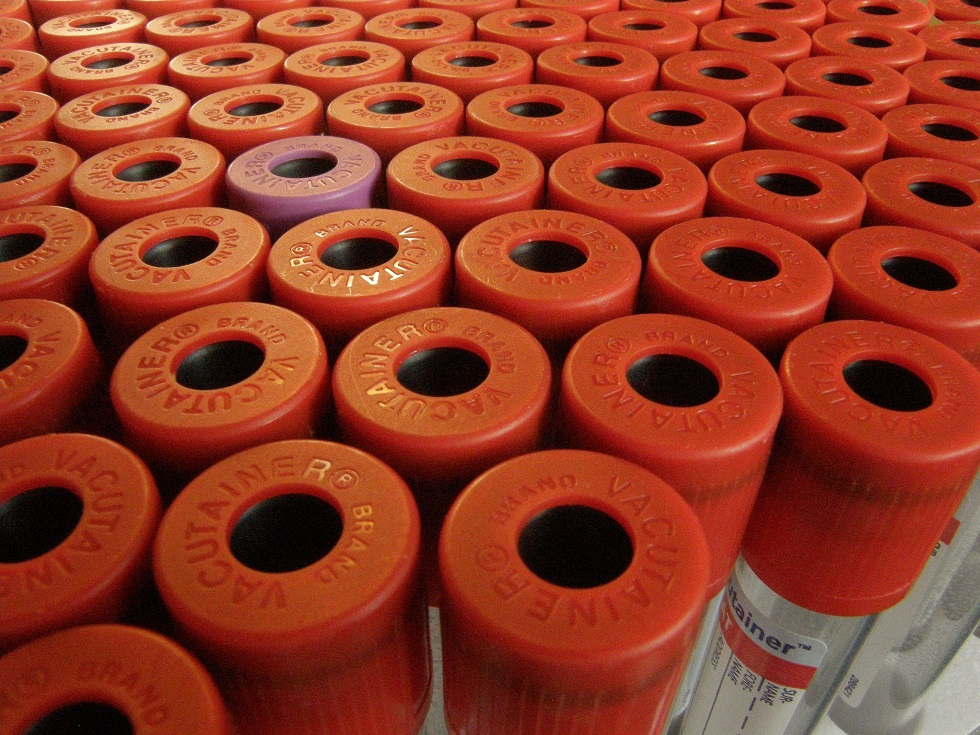Species: Dog, Cat
Specimen: Serum
Container: Red-top tube
Collection protocol: Fasted sample preferred.
Special handling/shipping requirements: Serum folate shows limited stability at room temperature. Ideally, separated serum samples for folate analysis should be kept in a refrigerator (4°C) for no longer than 48 hours. If samples are being held for more than 48 hours, serum should be separated and can be stored frozen at -20°C for up to 1 month.
General information: Folate and Cobalamin have traditionally been used in the assessment of patients with clinical signs of intestinal or pancreatic disease.
Cobalamin/Vitamin B12 is absorbed in the distal small intestine (specifically ileum) and needs an intrinsic factor produced exclusively (cats) or mostly (dogs) in the pancreas for this. Values below the reference/control range are often seen in patients with exocrine pancreatic insufficiency (or possibly pancreatitis), bacterial overgrowth in the upper small intestine, or disease affecting the distal small intestine. Values above the control range are not of any known clinical significance. If low, supplementation should be considered.
Folate is absorbed only in the proximal small intestine. Traditionally it has been used as an indicator of small intestinal bacterial overgrowth (SIBO), mainly in dogs, since this is uncommon in cats, with the rationale being that increased numbers of bacteria, producing folate, would increase folate concentration. It is still used in this way but is not specific for this condition. Values below the control range are considered consistent with disease affecting the proximal small intestine, reducing absorption. However, other factors can affect folate absorption such as changes in diet.
Not all intestinal diseases causing malabsorption are sufficiently severe or chronic to affect concentrations of cobalamin or folate so not all dogs or cats with intestinal disease will have abnormal results and not all animals with intestinal disease have abnormal intestinal morphology.
Note dietary deficiency of cobalamin or folate is unlikely and even several weeks starvation does not cause reduction in serum concentrations so low results reflect chronic malabsorption and should be considered significant.
When testing is indicated: For investigation of intestinal or pancreatic disease, as above.
Major differentials:
· Increased Cobalamin: No known significance.
· Decreased Cobalamin: EPI, pancreatitis, SIBO of proximal small intestine, distal small intestinal disease.
· Increased Folate: SIBO
· Decreased Folate: Proximal small intestinal disease.
Comparison with other related tests: Interpret in conjunction with clinical signs, history, serum protein/globulin, faecal occult blood, diarrhoea panel and imaging.

